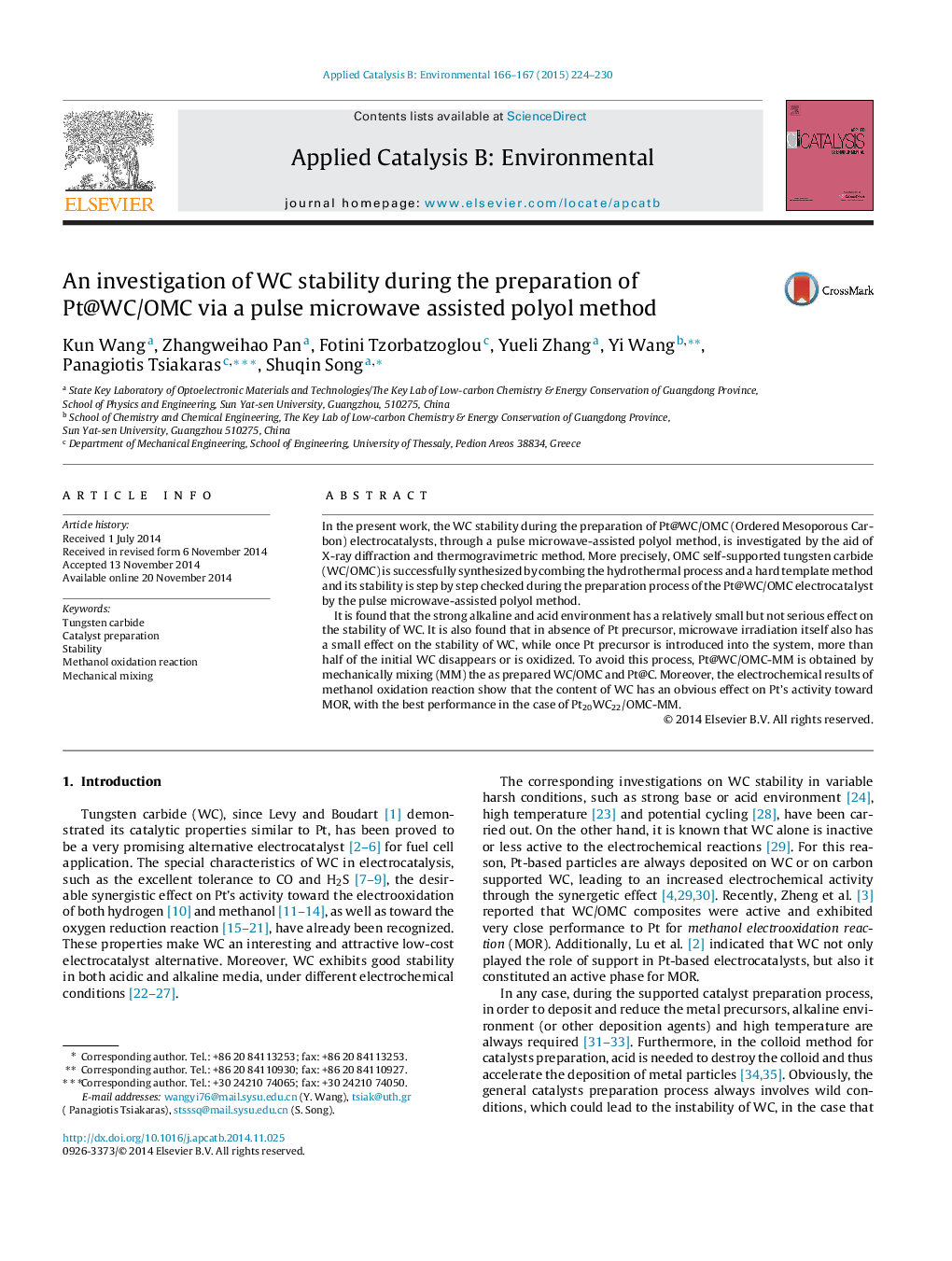| Article ID | Journal | Published Year | Pages | File Type |
|---|---|---|---|---|
| 45714 | Applied Catalysis B: Environmental | 2015 | 7 Pages |
•Catalyst preparation process could affect the stability of tungsten carbide (WC).•Co-presence of microwave irradiation and Pt precursor is the key factor leading to the instability of WC.•Mechanical mixing can avoid WC dissolution and thus take good advantage of the synergistic effect of WC.
In the present work, the WC stability during the preparation of Pt@WC/OMC (Ordered Mesoporous Carbon) electrocatalysts, through a pulse microwave-assisted polyol method, is investigated by the aid of X-ray diffraction and thermogravimetric method. More precisely, OMC self-supported tungsten carbide (WC/OMC) is successfully synthesized by combing the hydrothermal process and a hard template method and its stability is step by step checked during the preparation process of the Pt@WC/OMC electrocatalyst by the pulse microwave-assisted polyol method.It is found that the strong alkaline and acid environment has a relatively small but not serious effect on the stability of WC. It is also found that in absence of Pt precursor, microwave irradiation itself also has a small effect on the stability of WC, while once Pt precursor is introduced into the system, more than half of the initial WC disappears or is oxidized. To avoid this process, Pt@WC/OMC-MM is obtained by mechanically mixing (MM) the as prepared WC/OMC and Pt@C. Moreover, the electrochemical results of methanol oxidation reaction show that the content of WC has an obvious effect on Pt's activity toward MOR, with the best performance in the case of Pt20WC22/OMC-MM.
Graphical abstractFigure optionsDownload full-size imageDownload as PowerPoint slide
